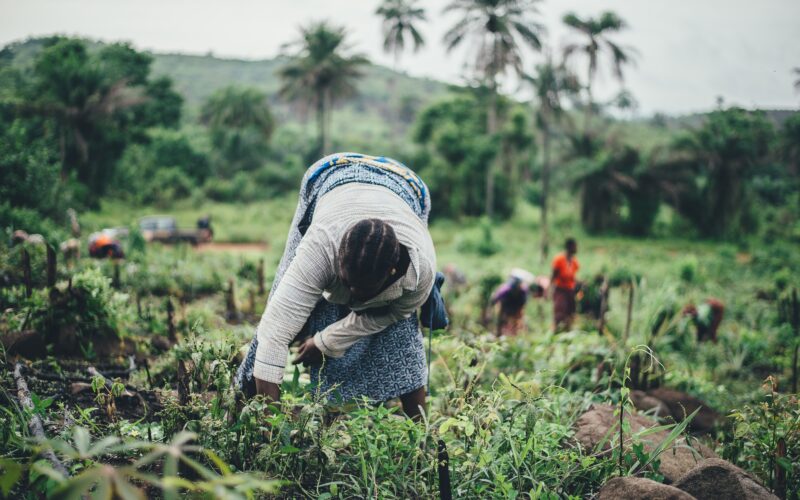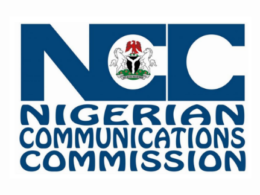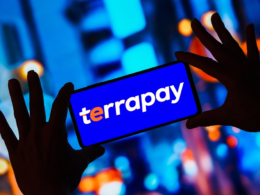The U.S.-based startup is extending its operations to Senegal following successful pilots conducted in Nigeria.
Blockchain technology, initially recognized as the foundation of cryptocurrencies, has evolved to address practical applications in various industries. Beyond the realm of digital currencies, it has found utility in traditional financial banking, supply chain traceability, and the digitization of real estate and agriculture. An emerging player in this landscape is UfarmX, a U.S.-based agricultural technology company seeking to leverage blockchain for creating digital records that connect off-the-grid and underserved farming communities to enhanced agrarian opportunities.
The significance of creating digital records becomes evident when considering the missed opportunities resulting from their absence. Despite the pivotal role of agriculture in Africa, the sector has experienced sluggish growth, hampered by the limited use of modern technology, leading to low productivity. Compounding the issue is the inadequate access to financing for acquiring and managing technological inputs.
A report from World Development Sustainability underscores the challenge, revealing that most small farmers struggle to access credit facilities due to a scarcity of organizations offering practical loans. Even when available, the high borrowing costs and risk-averse tendencies deter many farmers from pursuing these financial resources. Financial institutions, geared towards profit, often shy away from lending to small agricultural businesses, deeming them long-term investments with minimal returns. Moreover, the absence of proper documentation and record-keeping among farmers further obstructs lending institutions from assessing their past performance.
In this context, UfarmX’s initiative to employ blockchain for creating digital records holds the promise of bridging these gaps, fostering financial inclusion, and unlocking the untapped potential within Africa’s agricultural landscape.
Alexander Zanders, the CEO of UfarmX, highlighted the challenge faced by farmers in accessing credit facilities, attributing it to the absence of performance assessment tools for credit institutions. He pointed out that most farmers lack records of their activities due to informal business practices, making it difficult for credit institutions to evaluate their past agricultural seasons.
In addition to credit accessibility issues, the African agricultural sector grapples with traceability challenges, a problem common in developing countries according to the World Economic Forum (WEF). Identifying points of supply chain loss becomes daunting and nearly impossible in such regions.
Zanders emphasized the impact of the traceability problem on food security during disease outbreaks. He noted that in the Western world, outbreaks linked to supply chain contamination can be traced back to the source farm. However, in Africa, the lack of effective traceability means disease outbreaks become catastrophic events with little guidance for the public other than to pray.
UfarmX’s utilization of blockchain technology aims to address these pressing issues, offering a solution for credit assessment by establishing digital records and enhancing traceability in the agricultural supply chain. This strategic approach not only holds the potential to facilitate credit accessibility for farmers but also contributes to mitigating food security challenges during disease outbreaks in the African context.
One specific challenge we encountered in the Nigerian market is the fragmentation of markets, along with the absence of price transparency and consistency. There is no established commodity price in the country, and pricing lacks transparency and consistency,
Zander noted
These challenges extend beyond the production phase, as Zanders emphasized that farmers often incur losses due to fragmented pricing. During sales transactions, many are compelled to sell their products at a loss in order to secure buyers and prevent wastage.
“One specific challenge we encountered in the Nigerian market is the fragmentation of markets, along with the absence of price transparency and consistency. There is no established commodity price in the country, and pricing lacks transparency and consistency,” noted Zanders.
What UfarmX wants to do
UfarmX is leveraging blockchain technology to address these challenges. The solution is based on the Polkadot blockchain, enabling the storage of data both on and off-chain. Information collected from farmers is recorded on the blockchain, and individual QR codes are generated for each farmer, ensuring easy access and verifiability of their data for anyone in need. Zanders emphasized the significance of using blockchain for deploying these solutions to African farmers, citing its transparency and immutability as crucial factors.
In essence, UfarmX is endeavoring to establish digital portfolios for smallholder farmers, aiming to digitize their records for easy accessibility and verification on a blockchain. These records serve as credit scores, providing a means for farmers to access farm inputs and credit facilities. The use of blockchain, along with QR codes, allows precise tracking of provided seeds and fertilizers to each farmer, enabling the creation of autonomous portfolios that address challenges posed by informal business practices.
UfarmX does not directly provide loans to farmers but seeks to pave the way for them to approach financial institutions for such financial support. The company, however, does offer farming inputs on credit. Plans include partnerships with financial institutions to facilitate financing for farmers on its platform.
The blockchain solution by UfarmX also tackles the issue of fragmented and inconsistent pricing in the agricultural sector. By securing purchase orders from off-takers before farmers commence their activities, the platform ensures guaranteed pricing and the transparency afforded by the ledger system addresses concerns of inconsistency.
While blockchain technology is recognized for its advantages in agriculture, it faces skepticism in some quarters due to perceived high maintenance costs, energy intensity, and maturity concerns. Despite these challenges, UfarmX has conducted a successful pilot in Nigeria and is poised to expand into Senegal through a partnership with the nonprofit organization The SEED Project. As of now, UfarmX has integrated 1,300 farmers into its system across Nigeria and Senegal.












